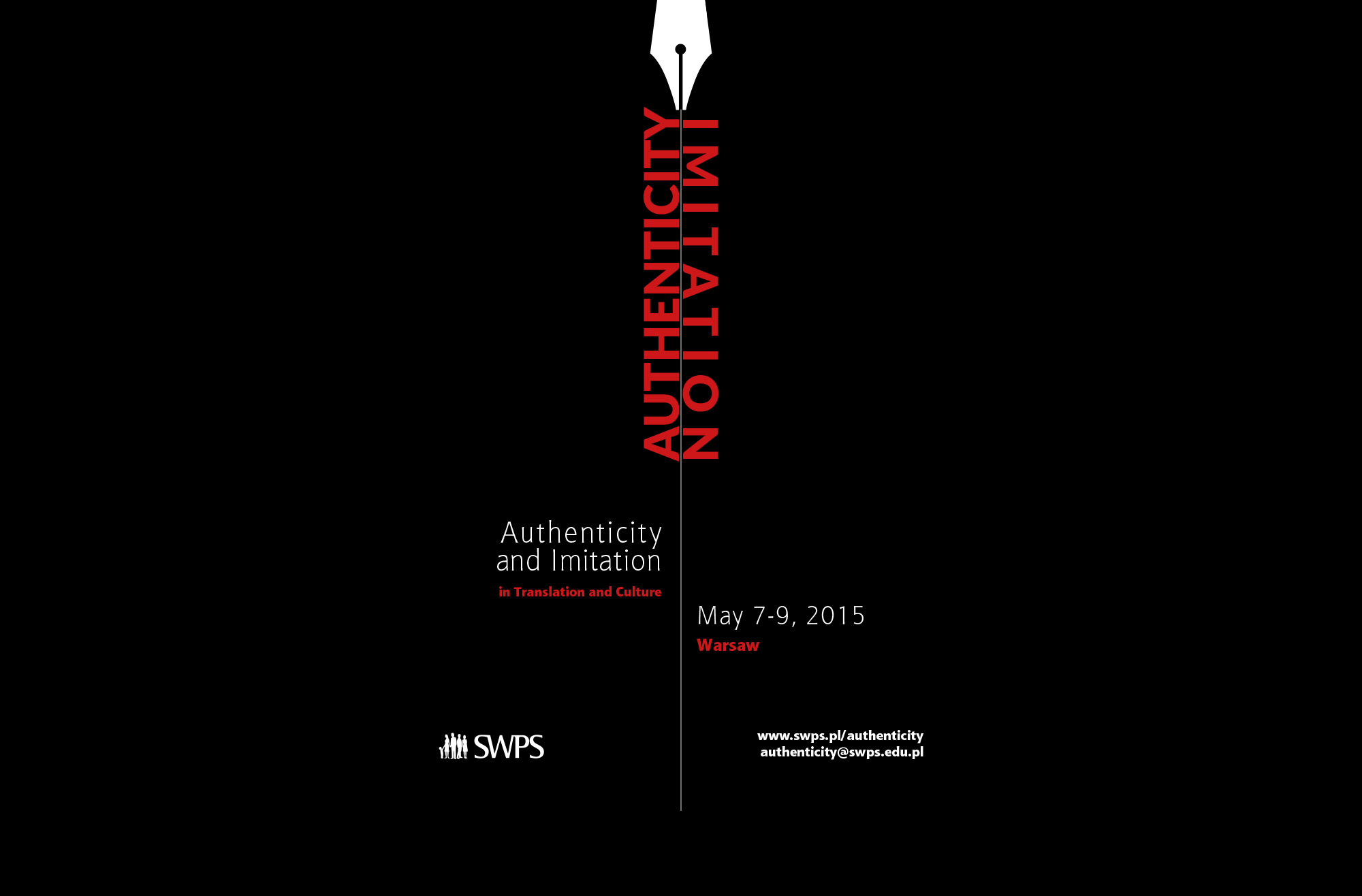Authenticity and Imitation in Translation and Culture

 1918 rok – Polska odzyskuje niepodległość, a Kazimierz Szpotański zakłada Fabrykę Aparatów Elektrycznych (FAE). Ambitny inżynier do dziś jest wzorem biznesmena, innowatora i społecznika. Podczas konferencji przybliżymy FAE oraz jej założyciela, a także zaprezentujemy przedsiębiorczość i innowacyjność współczesnej Pragi. Wydarzenie obowiązkowe nie tylko dla miłośników prawobrzeżnej części Warszawy.
1918 rok – Polska odzyskuje niepodległość, a Kazimierz Szpotański zakłada Fabrykę Aparatów Elektrycznych (FAE). Ambitny inżynier do dziś jest wzorem biznesmena, innowatora i społecznika. Podczas konferencji przybliżymy FAE oraz jej założyciela, a także zaprezentujemy przedsiębiorczość i innowacyjność współczesnej Pragi. Wydarzenie obowiązkowe nie tylko dla miłośników prawobrzeżnej części Warszawy.
W dniach 7-9 maja 2015 w siedzibie SWPS w Warszawie odbyła się międzynarodowa konferencja poświęcona zagadnieniom autentyczności i imitacji w kulturze i przekładzie. Wykłady na konferencji wygłosili m.in. prof. Elżbieta Tabakowska i prof. Lawrence Venuti.
For Plato, as it is only too well known, imitation was an unwelcome way of bringing falsity to the world. What is connoted by the word "imitation" is first of all a kind of copying, repetition and/or substitution of that which, otherwise, may be modified by the adjective "authentic", applicable to nouns ranging from "life" and "feeling" to "signature", "document" and, of course, "text". Miles Orvell's categories of "culture of imitation" and "culture of authenticity" which he uses to illustrate the passage from the nineteenth-century celebration of replicas to the modernist aesthetic of the authentic may well serve as a point of departure for looking at a range of possible configurations and ways of positioning of authenticity and imitation in contemporary culture. Since culture, and especially Western culture, may be read as a kind of discourse which "is born of translation and in translation", as Henri Meschonnic phrased it, the triad of authenticity, imitation and translation offers an array of issues which seem to be worth an insight and a discussion as a perspective offering ways of rethinking the role of translation in the perception of culture and everyday practices at the time of fluctuation of meanings, an almost omnipresent absence of authenticity and its imitative replacement by all sorts of simulacra.
Long ago, for John Dryden, imitation was a way of authenticating the translator at the cost of the authentic memory of the author. As he put it in his Preface to Ovid's Epistles (1680), "imitation of an author is the most advantageous way for a translator to shew himself, but the greatest wrong which can be done to the memory and reputation of the dead." This wronged memory of the dead and its spectral survival became, almost two hundred years later in the hands of Emerson, a sign of death of the authentic individual: "Imitation is suicide", as he wrote in Self-Reliance. What reverberates in the two statements is not only the old question of constructing graven images and their worship, but also much more recently posited questions of the death of the author and the birth of the reader, of loss and gain in translation, of the invisibility of the translator, of estrangement and defamiliarization, of domesticity and foreigness, of, more generally, a certain politics and poetics of imitation in which authenticity looms large as a constitutive outside to which we inevitably, though sometimes highly critically, relate.
Organizatorzy
Wydział Nauk Humanistycznych i Społecznych
- dr Agnieszka Pantuchowicz,
Katedra Kultur i Literatur Krajów Anglojęzycznych - dr Anna Warso,
Katedra Kultur i Literatur Krajów Anglojęzycznych
Termin i miejsce
7-9 maja 2015 r.
Uniwersytet SWPS
ul. Chodakowska 19/31
03-815 Warszawa



